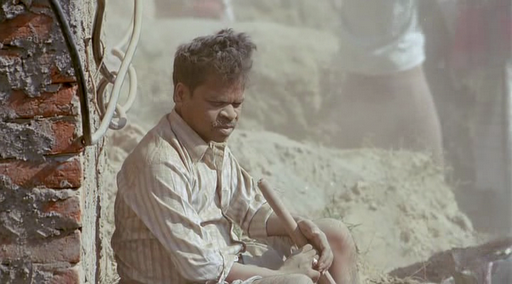Farmers committing suicide so they can be compensated after their death by the government is the backdrop to this Aamir Khan production. The opening dilemma of two farmers, Natha and Budhia, having their land seized by the feudalistic powers that be echoes Shambhu Mahto’s enslavement to the demonic zamindar in Do Bigha Zamin. Peepli Live takes the story of impoverished framers to analyse the state of the Indian media. At times, it was a case of too many characters and sub plots overwhelming the main narrative. I’m no sure why the film feels the need to work in so many narratives and although it might work to highlight the hysterical media frenzy, ultimately it detracts from the original story of the farmers. When the national media discovers that Natha has promised to commit suicide, they descend upon the village, turning the rural space into a media carnival. The film’s parasitic depiction of the media recalls with eerie precision the vicious journalism of Billy Wilder’s Ace in the Hole. Similarly in Peepli Live, the media pretends to care in the interests of coverage for their respective news channels. If the media is rightly the target of this satirical critique than it does a far better job than a recent film like No One Killed Jessica in which the media is presented as flawed but still courageous in its support of those denied a voice or misrepresented.
Additionally, what makes this film’s representation of the media much more convincing and complex is the attempt to include the role of local media. In this case, the indigenous and authentic voice of the media comes from a local journalist Rakesh who finds the ‘real’ story worth telling in the village. Natha and Budhia’s predicament becomes a political bandwagon, creating a media platform for ideological dogma that reduces life and death to an inconsequential meta-narrative. Director Anusha Rizvi’s film is an assured debut, which benefits from a well-written screenplay, good pacing and some flashes of visual imagination. However, it is a film salvaged in many ways by the end shot of an exhausted Natha covered in a mask of dirt working in a construction site, most probably in the city; it’s the most haunting and effective shot of the film because it says so clearly that no matter where Natha goes he will be always be part of an anonymous invisible mass.


Leave a comment